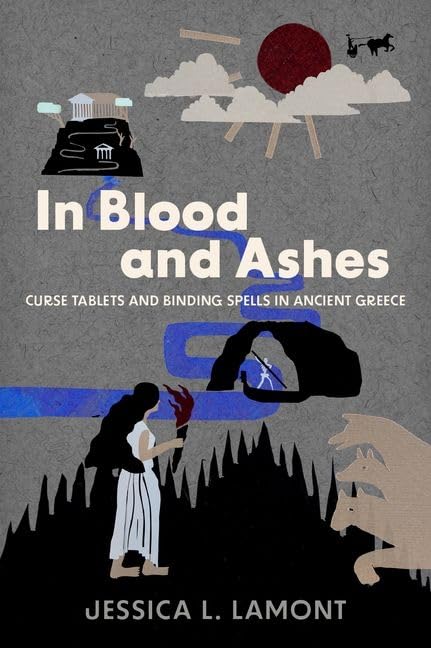December 18, 2024
Congratulations to the individuals, projects, and publications that received AIA Awards. They will be formally recognized at the 2025 AIA Awards Ceremony, which will take place during the 126th Annual Meeting. We have contacted this year’s winners to gather insights about their projects, experiences, and what inspired them to pursue a career in archaeology.
Jessica Lamont (Yale University)
Award: James R. Wiseman Book Award

In Blood and Ashes: Curse Tablets and Binding Spells in Ancient Greece by Dr. Jessica Lamont
Investigating the development and dissemination of ritualized cursing across the Mediterranean, this book provides a history of curse practice— alongside that of binding spells, incantations, and other ritual phenomena— in Greek antiquity from c. 750 to 250 BCE. These rites greatly expand our understanding of daily life in ancient communities, and provide rare insights into how individuals were making sense of the world and coping with conflict, vulnerability, competition, anxiety, desire, and loss. Curse tablets in particular document persons who often slip through the cracks of traditional histories, enabling us to approach antiquity through a broader lens: here are cooks, tavern keepers, cumin-sellers, helmsmen, and barbers. These objects enrich our view of the classical past, populating the Greek world with a more inclusive group of narratives than otherwise afforded by literary sources.
What drew you to archaeology?
The sheer excitement of archaeology as a method for accessing and learning more about the past. In my own areas of research and teaching, the field of ancient Greek history has been such a beneficiary of archaeology over the past 150 years– archaeological excavation has expanded the parameters of “Greek civilization” itself by centuries, revealed much that passes unmentioned by literary sources, unearthed so many new material sources that change how we understand ancient individuals and communities, and has much to teach us about how ancient people lived and died.
Tell us about your history with the AIA:
I’ve been a member of the AIA since I was a graduate student, and have served since 2017 as the President of the New Haven Chapter of the AIA; I give lectures for the AIA from time to time (this coming Spring, in Boston), and have written for both the AJA and Archaeology magazine about ancient Greek magic. I’ve also worked as a field archaeologist at several sites in Greece (Athenian Agora, Pylos-Iklaina, Corinth, Molyvoti Thrace) and also in Ethiopia (Beita Samati) for nearly two decades now: my first experience excavating was at Pylos-Iklaina back in 2006..!
What’s next for you professionally?
I’m working on a book about medicine and healing practices in ancient Greece. I’ll always be interested in ancient Greek magic, and excavations are constantly churning up new evidence for these ritual practices across the Mediterranean and Black Sea and well beyond! I’m lucky, too, to be able to teach students about these topics.
How did you get started on your project?
It was a real surprise to me to learn that the ancient Greeks and Romans used to practice magic! And it made Classical antiquity much more interesting–and fun. This book in particular began as a small side project, a matter of transcribing some inscribed lead tablets (“curse tablets”) one summer in Athens, Greece. What drew me in deeper were the deities and historic individuals documented by these objects, and their potential for expanding modern understandings of daily life, religion, and social history in Classical antiquity. The project presents a broad set of narratives: readers encounter an amphora seller and barber in the Athenian Agora, a helmsman transporting enslaved persons in the northern Black Sea, a wealthy sponsor of choregic competitions in coastal Sicily, and a female garland weaver in Roman Corinth. These types of ritual objects show how ancient Greek individuals were managing conflict, competition, and vulnerability, and engaging with the gods, the dead, and the Underworld in rites meant to change the present and future course of events.
Questions? Learn more about AIA Awards here or reach out to awards@archaeological.org
Notifications